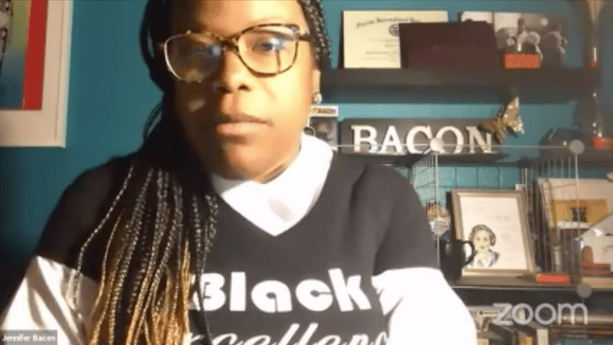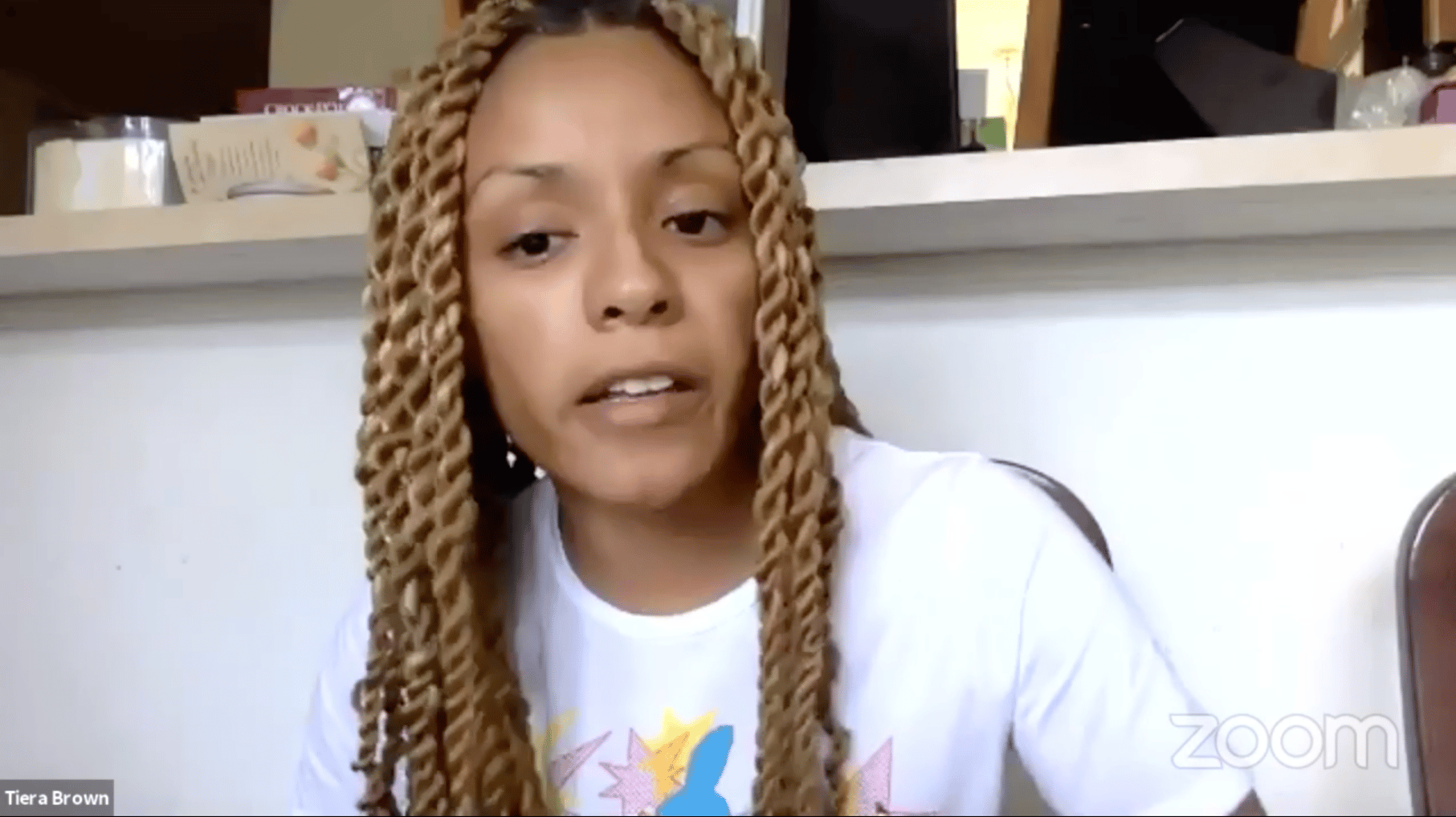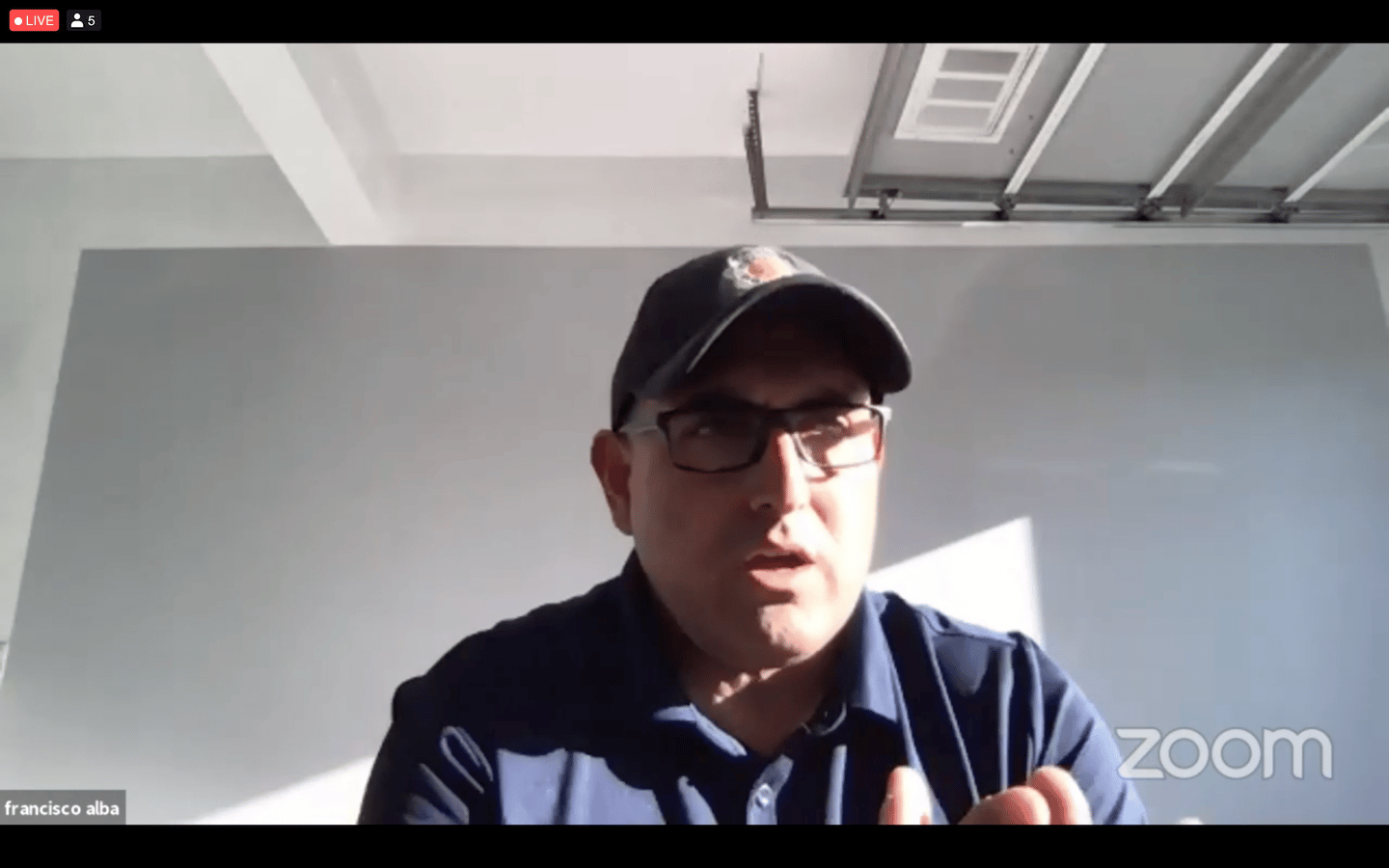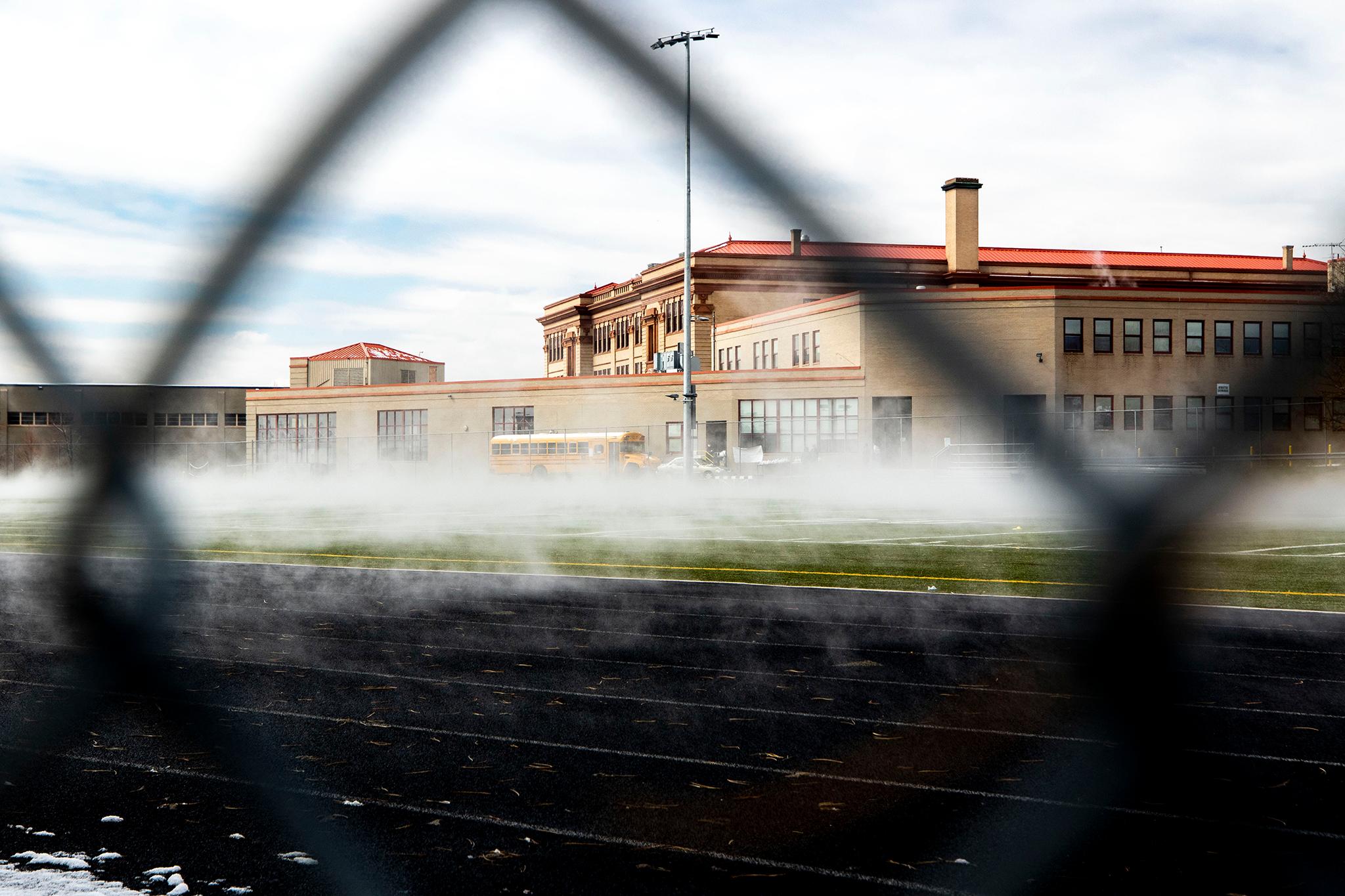Denver’s public school system will part ways with in-school police officers who have monitored students and campuses for 22 years.
After four hours of heated comment from the public Thursday evening, the Denver Public Schools Board of Education voted unanimously to order Denver Police Department officers out of school hallways and classrooms. The resolution, sponsored by board members Tay Anderson and Jennifer Bacon, charges Superintendent Susana Cordova with ending DPS’s contract with the police department and removing all “school resource officers” by June 4, 2021.
Thursday’s decision was a mile marker on a long road for advocates who say uniformed officers in an educational setting push young people, especially people of color, into the criminal justice system. Denver’s in-school officers ticketed and arrested over 4,500 students over the span of five school years between 2014 and 2019, according to the resolution. Eighty percent of the students were Black and Latinx, according to Padres & Jóvenes Unidos, a group concerned with educational equity that has led the movement against in-school policing for more than a decade.

“We are in a place in which we can see an opportunity to actually walk our talk in believing that we no longer have to be conditioned to accept the things that we are accepting,” Bacon said. “We have been having these conversations in our communities for a long time, but we are at a place today. And we should recognize that it took the death of a man to help raise the awareness of the issues in which we have been cleaning to overcome for decades now.”
Cops have monitored schools since 1998, but the school system and police department made the agreement official in 2013, DPS spokesperson Winna MacLaren said. Recent protests over the death of George Floyd and systemic racism fast-tracked the move to end that contract, which currently allows 18 officers to monitor public schools.
Board members also directed Superintendent Cordova to redirect the $721,000 earmarked for the in-school police program and spend it on social workers, psychologists and experts on restorative justice, which emphasizes mediation between the offender and the victim.
“Not having somebody who’s wearing a bulletproof vest and a gun on their hip and handcuffs and tasers and Mace is going to be a little bit different of a mentor or a relationship than somebody who is willing to listen to you doesn’t have to follow a penal code,” said Keri Smith, deputy director at Padres & Jóvenes Unidos.
According to the Denver Police Department’s operations manual, school resource officers are supposed to “act as a law enforcement liaison/consultant/representative with students, faculty, school administration, parents, and the school community. Where appropriate they provide coaching and mentoring.”
Aside from removing in-school officers and replacing them with specialists, the resolution dictates that DPS create a policy to ban tickets, arrests and referring students to law enforcement while on school grounds “unless there are no other available alternatives for addressing imminent threats of serious harm to members of the school community or school officials are otherwise obligated by law.”
Educators, students, graduates, student advocates and a Denver police officer shared opinions that made board members consider the risks of having in-school officers — and the risk of shedding them.
“We heard from several stakeholders tonight, with pros and cons on both sides. It’s important to think about the full context here: strong safety resources on our campuses; trusting relationships with the adults in our schools; and the urgent and absolute need to end the school-to-prison pipeline,” Superintendent Cordova said in a statement. “I believe the board has voted on this resolution with the best interest of students at heart.”
Tiera Brown, 28, said she was “one of the faces” of the statistics that show people of color being disproportionately disciplined compared to their white peers. The Montbello native said punitive measures at the hands of in-school officers while she grew up in the school system helped send her down a path of periodic encounters with law enforcement until two years ago.

While her trauma did not begin with school resource officers, Brown said, seeing armed officers daily “messes with your psyche.” A law student now, she said she’s a rare success case, and that she wants her four-year-old to have a different experience at DPS.
Brown’s experience and the experience of others at DPS was weighed against other risks. Tayler Williams, a patrol officer with DPS Department of Safety, said in-school officers intervene in fights, find runaway kids, buy students lunch and when students mess up, give them a pass — an act that results from having a relationship.
Officers also collect weapons.
“We think it is shameful to be politicizing school safety,” Williams said. “The public does not realize how many knives and guns and drugs DPD and my department have recovered in the past several years.”
Jason Murdock, dean of students at Dr. Martin Luther King Jr. Early College, was completely against ending the schools’ contract with DPD. He said in-school officers help his students and he’d never witnessed racism in their actions. Murdock accused school board members of taking a rash stance based on the department’s use of weapons on residents, including, allegedly, DPS students.

“I’m ashamed to work for a district that has people who accept and tolerate known racism while capitalizing on society’s valid pain with racist law enforcement,” Murdock said.
Other educators said the school board is acting too fast, without consulting them.
Officer Francisco Alba, a school resource officer, said the public doesn’t see the nuance of his job.
“We’re looking at the national narrative versus what’s actually happening here in Denver,” Alba said. “There’s not one officer that I know of … that wakes up in the morning and says, I cannot wait to arrest two, three, four people.”

Alba’s job, he said, is to get some students “to understand what they’ve done was illegal or immoral or wrong or whatever, and then try to find a solution outside of a ticket or an arrest.” Alba took offense to the idea that police officers are simply iron fists, because he said they’ve been trained on crisis intervention.
But several people who spoke Thursday said ridding schools of officers is not a personal attack on the police; it’s a small step in dismantling a structural problem.
“I’ve worked with many (school resource officers) who are deeply committed to students,” said Jennifer Jackson, principal at the AUL Denver. “That’s not the question here. School funding is finite in Colorado. When we employ police in our schools over mental health counselors, over nurses and over arts education, we are saying as a district that that’s where our values lie, that we value policing students over educating them.”
Others applauded the move, but said it’s only the beginning.

“Now, just taking cops out of our schools is a start, but there’s much more than we can do to stop what is happening currently in the public education system,” said Michael Diaz-Rivera, a DPS teacher.












